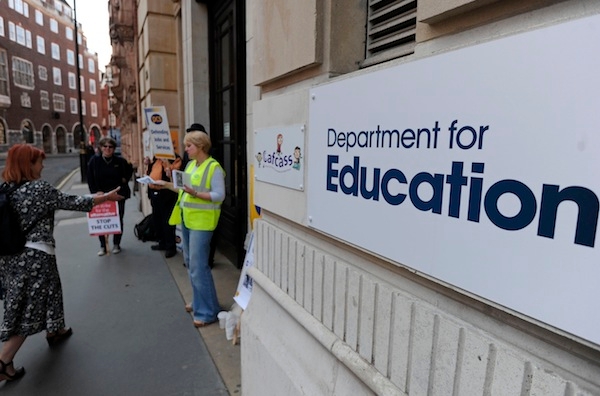Is there really war in Whitehall? Tensions between ministers and civil servants have certainly spilled over at some departments, but there has, as you might expect, been a backlash over the past few days to the Times investigation into the civil service.
Former civil service head Lord O’Donnell and Telegraph columnist Sue Cameron have both, unsurprisingly, defended the service. Yesterday Cameron attacked the idea of a ‘war’. She reported that Number 10 had rejected this, with a source saying ‘we don’t have a massive crisis. We don’t have government paralysis’. Reforms in key policy areas such as welfare, health and education were, she said, a sign that the civil service was working well, with its major failing apparently being too much obedience.
The Whitehall sources I’ve spoken to reject both claims; that Whitehall is at war, but also that it isn’t suffering as a result of a failure to reform. Guido also quotes a source rubbishing the claims that officials are not blocking reforms as ‘patent nonsense’.One of the problems with Cameron’s reference to welfare reform is that it could be the civil service wot done it if the universal credit project turns out to be a flop. The Spectator has already reported that senior civil servants are starting to turn their backs on it. And as I blogged earlier in the week, Michael Gove has managed to push his reforms through partly by dint of having a superstructure of advisers to help him, rather than relying on his civil servants.
Meanwhile O’Donnell’s attack in the Independent included an accusation that the government was grinding down civil service morale, and that these sorts of criticisms always popped up when an incumbent’s popularity is sagging in the polls. But the Civil Service People Survey shows that the Employee Engagement Index, which measures civil servant morale, has actually risen 2 per cent in the year after O’Donnell left his position. It now stands at 58 per cent.
One Whitehall source pointed out that O’Donnell left the civil service ‘with longstanding weaknesses which he failed to address’, adding that the problems with the civil service weren’t so much the stereotypical image of civil servants scratching the backs of ministers with their anti-reform claws, but the ‘plumbing of the system itself’.
While O’Donnell’s accusation that knocking the civil service is easy to do when you’re on a sticky wicket in the polls might sound pretty reasonable, it is undermined by the support for civil service reform exhibited by former Labour ministers. Sources also hope that the current Labour frontbench will support change to the Whitehall plumbing after the revelations this week.







Comments